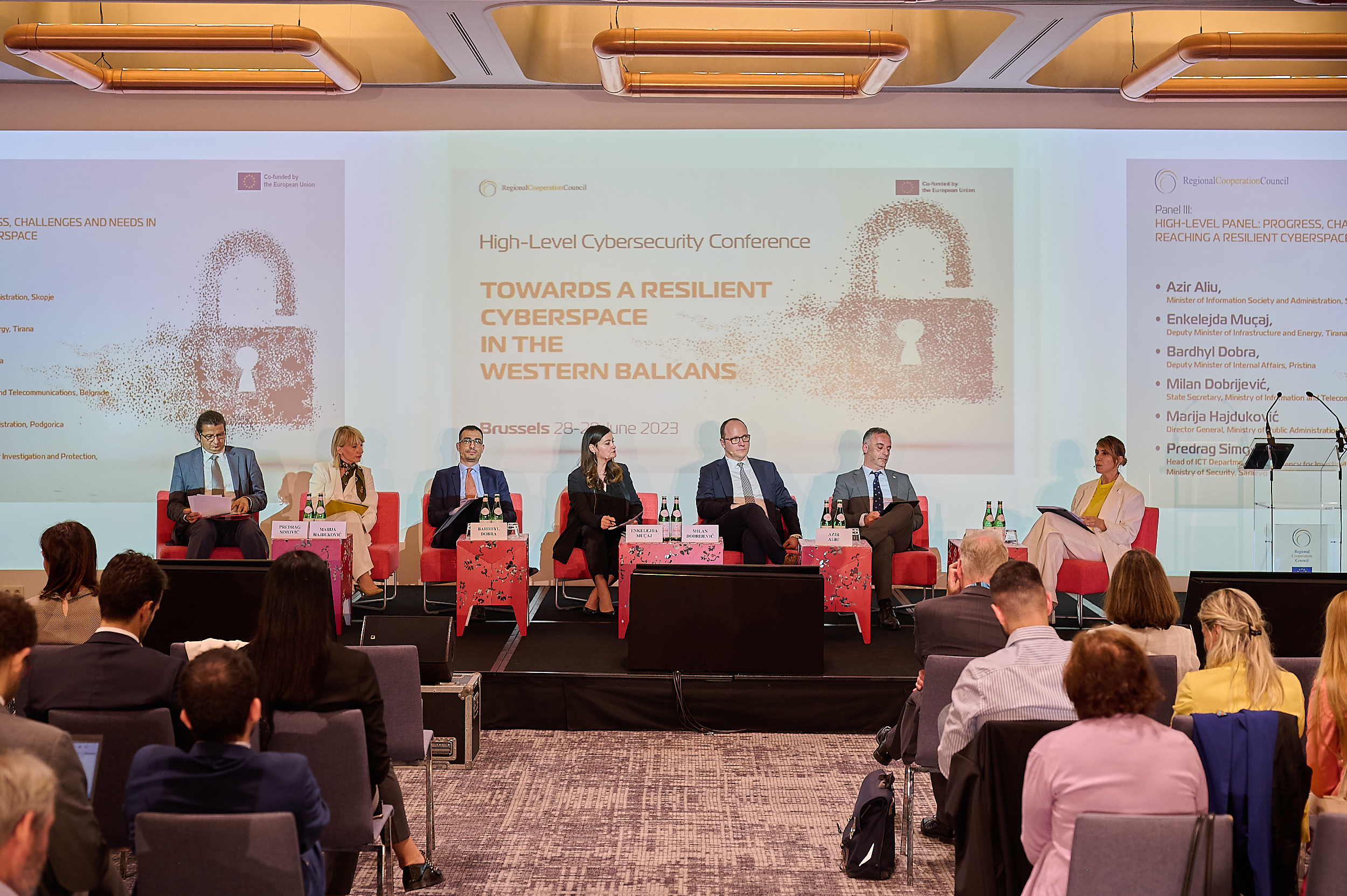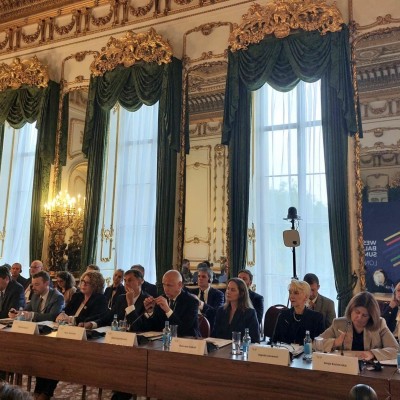Bregu: Regional approach to cybersecurity, in line with EU standards, is a must
29 June 2023

RCC Secretary General addressing the high-level conference on cybersecurity in the Western Balkans, in Brussels on 29 June 2023 (Photo: RCC/Jerome Hubert)

High-level conference on cybersecurity in the Western Balkans, in Brussels on 29 June 2023 (Photo: RCC/Jerome Hubert)
Brussels: RCC organise high-level conference on cybersecurity in the Western Balkans
The Regional Cooperation Council (RCC), in cooperation with DG NEAR, organised a two-day high-level conference on cybersecurity in the Western Balkans, on 28-29 June 2023 in Brussels.
“Cyber-attacks are borderless – a joint regional approach to ensure cybersecurity in the region, in line with EU standards, has become a must. Western Balkan economies need robust legal frameworks that facilitate cooperation and information sharing amongst themselves and with EU as well. However, a high level of political commitment to cybersecurity reforms comes first. Region needs to work together. Education and awareness are equally vital components of a comprehensive cybersecurity strategy, as well as programmes and strategies that support digitalisation of business, including e-commerce, which we should be developing rapidly,” said RCC Secretary General, Majlinda Bregu, in her keynote speech at the panel dedicated to progress, challenges and needs in reaching a resilient cyberspace in the Western Balkans.
Besides Ms Bregu, a keynote speech was delivered by the EC’s DG NEAR Director General, Gert Jan Koopman, while the panellists included Azir Aliu, Minister of Information Society and Administration of North Macedonia; Enkelejda Muçaj, Deputy Minister of Infrastructure and Energy of Albania; Bardhyl Dobra, Deputy Minister of Internal Affairs of Kosovo*; Milan Dobrijević, State Secretary at the Ministry of Information and Telecommunications of Serbia; Marija Hajduković, Director General at the Ministry of Public Administration of Montenegro; Predrag Simović, Head of ICT Department at the State Agency for Investigation and Protection of Bosnia and Herzegovina.
“If it would be measured as a country, cybercrime, which is predicted to inflict damages totalling 8 trillion USD globally in 2023, would be the third largest economy after US and China. If studies and forecasts are scientifically right, an increase of 15% of cybercrime costs per year over the next 3 years will be the greatest transfer of economic wealth in history. It means that the imperative to protect ourselves should be timeboxing. Enhancing cyber resilience in our region remains a fundamental building block and backbone for all transformative changes, including accelerated integration of e-commerce and the single market. Western Balkans needs “plug-ins” in all EU bodies, networks, frameworks – in any capacity feasible,” concluded Bregu.
RCC has recently joined 110 members of the Global Forum on Cyber Expertise (GFCE) to continue strengthening regional and European cyber security capacity building. The RCC is advocating for EU to enable integration of the Western Balkans in the work of the European Union Agency for Cybersecurity (ENISA). This will mark another application of “phasing in” and contribute to an accelerated alignment of WB with the EU Single Market standards and practices. Additionally, inclusion of Western Balkans in EU Cybersecurity Incident Review Mechanism to assess and review specific cybersecurity incidents would enable an enhanced response to cyber-attacks in the Western Balkans and build capacities for timely response.
The participants of the conference discussed advancing the Western Balkans on their path to greater cyber resilience to cyber threats. Ministers and other representatives of Western Balkans governments and public institutions, donors, international organisations, implementing partners, private sector, NGOs and academia exchanged views on the outstanding challenges and needs in the field of cybersecurity and explored ways to best address them through a whole-of-government and whole-of-society approach. The exchanges focused on strengthening regional cooperation, and improving information sharing and exchange of knowledge and experience amongst the Western Balkan economies and within the global cyber community.
*This designation is without prejudice to positions on status, and is in line with UNSCR 1244/1999 and the ICJ Opinion on the Kosovo declaration of independence.



